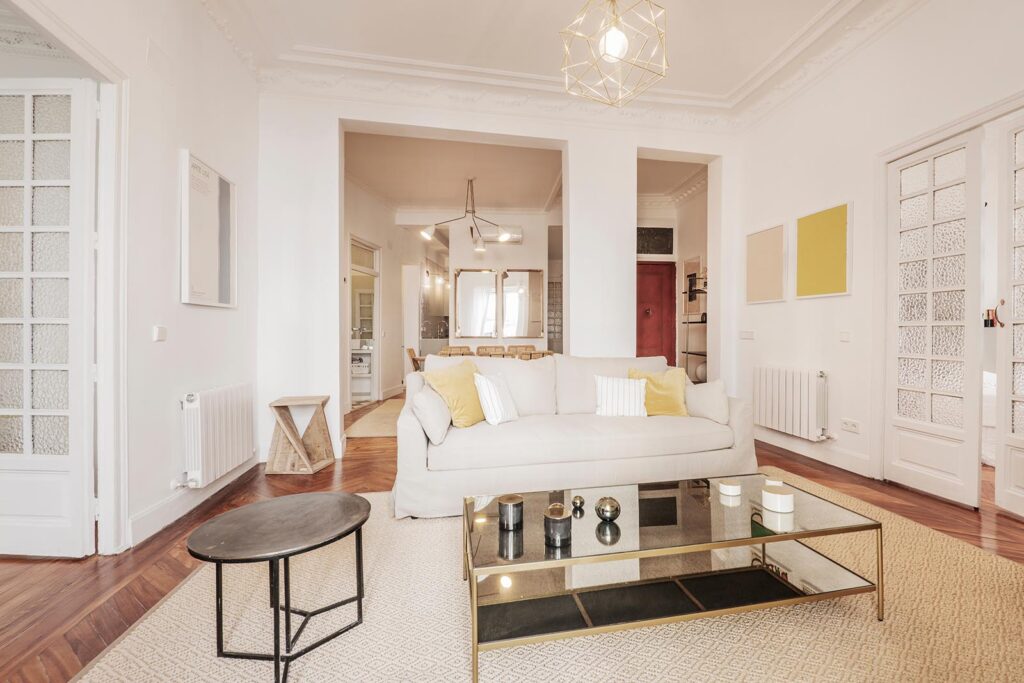Setting up a B&B is an exciting adventure, which can be a rewarding job for those willing to put in some work. From choosing the colour scheme and furnishings for the guest bedrooms to devising a marketing plan for your B&B, there are plenty of interesting things to be thinking about. Equally, if not more, important are the various B&B legal matters that come hand in hand with opening your own B&B. To avoid falling on the wrong side of the law, we’ve compiled a list of some of the key legal issues that are worth bearing in mind before opening your bed and breakfast for business.
1. Planning permission
While you might not need to alter the layout of your premises when setting up a B&B, you may still be required to apply for a change of use of your property. Whether or not you’ll need to do so depends upon a number of factors, including the number of guests that can be accommodated and whether or not you as the owner will be living in there too.
For more information, contact your Local Planning Authority (LPA). English and Welsh residents can find this through the Planning Portal body, in Scotland through the official Scottish Government website and in Northern Ireland via the Department for Infrastructure.
2. Insurance
If it’s your own home you’re transforming into a B&B, you must contact your insurance company to tell them the absolute maximum amount of people that can stay at one time. A standard home insurance policy will not be sufficient and you will need to be covered by a business insurance policy and public liability cover. You will also need to check with your insurer that the rest of your cover will not be invalidated by taking paying guests. There are a number of insurers offering B&B insurance packages suitable for small B&Bs. Keep in mind that you may also need to provide your insurer with a fire certificate.
3. Fire regulations
A fire risk assessment is another of the B&B legal matters that must be carried out when setting up a B&B – which came into force in 2006 via the Regulatory Reform (Fire Safety) Order 2005. This will enable you to flag up any hazards that could cause a fire, such as heating goods and overloaded extension power chords, and establish what measures you need to take to reduce the risk of a fire. In the case that your B&B employs more than five people, you must make a note of the findings of the assessment and keep them for your records.
4. Gas safety
Having your boiler inspected by a Gas Safe representative is extremely important if you are going to be accommodating guests in your property. We recommend arranging this prior to opening for business. Once the inspection has been completed, don’t forget to display the certificate in a place that’s clearly visible for guests to see.
5. Television licence
Providing televisions in guest bedrooms generally comes as standard nowadays, however, it’s important to remember that a standard television licence won’t suffice. Instead, you’ll need the “hotel and mobile units television licence”. This covers up to 15 televisions and can be purchased online from TV Licensing for £150.50. The only exception to this is that, if you are hosting a long-term guest who is staying for more than 28 days, a standard television license is needed.
6. Music license
If you’re a more hands-on type of host, you might be considering mandatory karaoke nights for all guests. Or, if not, you might have noticed that a great way to create an atmosphere in the dining room while guests are eating is to have some quiet music playing in the background. If you plan on doing either, by law, you’ll need to invest in two different licences – a PRS (Performing Right Society) licence and a PPL (Phonographic Performance Ltd) licence.
These can be bought online and are also needed to cover any music which is played via a television or radio in individual guest bedrooms. For more information, visit the PRS and PPL websites.
7. DVD concierge licence
To really boost their guests’ experiences, loads of B&Bs offer a DVD lending service, which allows guests to watch films in their own room. However, you’ll need to invest in a DVD concierge licence. For further information or to download an application form, simply visit the Filmbank website.
8. Alcohol licence
If you’re planning on serving alcohol at your B&B, even if it’s just a complimentary glass of bubbly on arrival, you will need to apply for both a personal and premise alcohol licence. Applying for these can be both costly and time-consuming, so it’s worth taking some time to consider whether this will be worthwhile in the long run.
9. Food safety
As the name would suggest, breakfast is often the only meal served by B&Bs. Nevertheless, as a guesthouse owner, you still need to make sure that you’re adhering to food safety legislation. The first step you’ll need to take is to register with your local Environmental Health Officer, who will arrange to visit your property to carry out an assessment.
You might even consider completing a food hygiene course, which, although not mandatory, will ensure that you are fully up to speed with the safety measures that are required when serving food. Additionally, the B and B Association have some of the most up to date information available, as the laws surrounding food standards are always changing.
10. Fairness and equality
In order to make sure that your guests feel as welcome as possible, it’s important that they are treated fairly and equally. For example, guests with disabilities should be able to enjoy the facilities of your B&B in the same way as anyone else. This may require you to make certain changes to your property, within reason – such as entry ramps, rails or handles. More information on this can be found within the Code of Practice set out by the Equality and Human Rights Commission.
11. Smoking regulations
Since 2007, smoking has been forbidden in public indoor areas. As a result, B&B owners must restrict their guests from smoking in communal areas, such as corridors, lounges and dining spaces. However, when it comes to individual guest bedrooms, it is up to the owner to decide whether or not to allow their guests to smoke in their own room, as these are not classed as public spaces.
While these B&B legal matters might seem like inconvenient barriers to actually hosting guests, plenty of them only need to be done once or revisited every so often. And while they might seem like a headache now, you’re in for far more frustration if you get into trouble for not doing them. Plus, several B&B legal matters will make sure your property is safe should the worst happen – and you can’t argue with that!
For more help with managing your B&B, take a look at eviivo’s award-winning booking management software, designed to make taking bookings a lot more simple, so you’ll have more time for the fun stuff – actually running your B&B!


